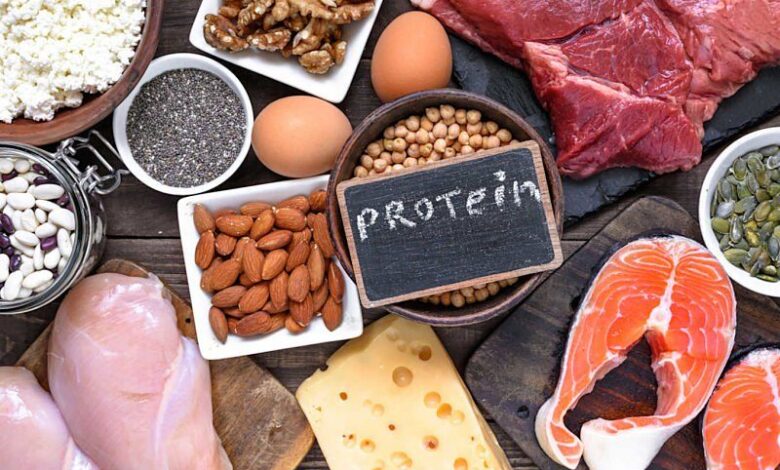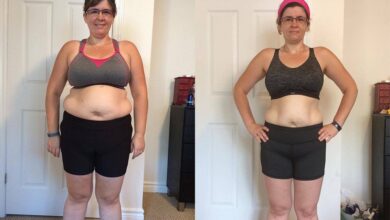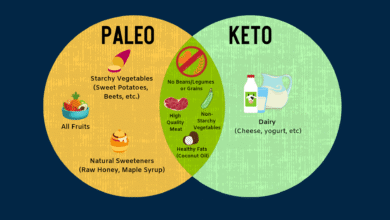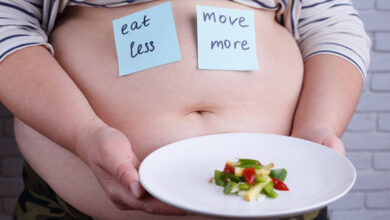High-Protein Diets for Rapid Weight Loss Success: Proven Strategies for Fat Burning and Healthy Living

When it comes to weight loss, most people immediately think about cutting calories, skipping carbs, or spending countless hours in the gym. While those strategies may help in the short term, many fail because they are unsustainable. One powerful yet often underestimated approach is focusing on high-protein diets. Protein is not just for bodybuilders or athletes—it’s the most filling macronutrient, a metabolism booster, and the cornerstone of building a lean, strong, and fat-burning body. Imagine eating in a way that naturally reduces hunger, keeps your energy stable, and allows you to shed fat without constant cravings. That’s exactly what a well-designed high-protein diet can do. This article dives deep into why protein works, how it affects your metabolism, and the best strategies to use it for rapid weight loss success. By the end, you’ll have the knowledge and actionable steps to transform your eating habits, boost your health, and finally achieve the results you’ve been chasing.
Read Also Weight Loss for Women Over 40: Proven Hormone, Diet, and Exercise Strategies That Work
The Science of Protein and Weight Loss
Protein is one of the three essential macronutrients—alongside carbohydrates and fats—that fuel your body. What sets it apart is its thermic effect of food (TEF), meaning your body burns more calories digesting protein than it does digesting carbs or fat. Research shows that around 20–30% of protein calories are burned during digestion, compared to just 5–10% for carbs and 0–3% for fats. This natural “calorie-burning bonus” is one reason high-protein diets are linked with faster fat loss.
Another major factor is satiety. Protein stimulates hormones like peptide YY and GLP-1, which reduce appetite and make you feel fuller for longer. When you eat enough protein, you’re far less likely to overeat or give in to late-night cravings. This makes sticking to a calorie deficit—a requirement for fat loss—much easier. Furthermore, protein preserves lean muscle mass, which is crucial when dieting. Losing weight without adequate protein often leads to muscle loss, slowing down metabolism. With protein, you maintain muscle, burn more fat, and keep your metabolism active, which means long-lasting results.
The Role of Protein in Boosting Metabolism
A sluggish metabolism is one of the biggest barriers to weight loss. People who have dieted multiple times often find it harder to lose weight because their metabolic rate has adapted to lower calorie intake. Protein combats this issue by increasing your resting metabolic rate (RMR). Simply put, your body burns more calories—even while sitting still—when you eat more protein.
Think of it like upgrading your car’s engine. A bigger, more efficient engine requires more fuel to run. Similarly, by increasing your protein intake, you make your body demand more energy daily. Studies have consistently shown that high-protein diets increase metabolism by 80–100 calories per day. While that may not sound like much, over weeks and months it adds up, creating significant fat loss without any extra effort.
High-Protein Diets vs. Low-Carb Diets: Which is Better for Weight Loss?
Many people confuse high-protein diets with low-carb diets, but they are not the same. Low-carb diets like keto restrict carbs heavily, forcing the body into ketosis, where fat becomes the primary fuel. While keto can be effective, it is often too restrictive and difficult to maintain.
High-protein diets, on the other hand, don’t necessarily restrict carbs to extreme levels. Instead, they prioritize protein intake while allowing moderate amounts of healthy carbs and fats. This makes them more flexible, sustainable, and adaptable for long-term weight management. High-protein diets also avoid the side effects of extreme carb restriction, such as fatigue, brain fog, and nutrient deficiencies.
The real question is not “protein or carbs,” but how to balance macronutrients. The best diets for weight loss often combine high protein with moderate carbs and fats, allowing steady energy levels, better workout performance, and reduced hunger. In short, protein-rich diets are more sustainable for everyday life than ultra-restrictive low-carb plans.
How Much Protein Do You Really Need for Rapid Fat Loss?
The ideal amount of protein varies depending on your body weight, activity level, and goals. A common recommendation for weight loss is 1.2–2.0 grams of protein per kilogram of body weight per day. For example, someone weighing 70kg (154 lbs) should aim for 84–140 grams of protein daily.
Athletes, bodybuilders, or those in intense fat-loss programs may require more, closer to 2.2g per kg of body weight. What matters most is consistency. Eating high protein at one meal won’t make a difference if you neglect it at others. Distribute your protein intake evenly across breakfast, lunch, dinner, and snacks to keep your body fueled and metabolism humming all day long.
Best High-Protein Foods for Weight Loss
Not all protein sources are created equal. To get the most benefit, focus on lean, nutrient-dense proteins that are high in quality and low in added fats. Here are the best categories:
Lean Meats
- Chicken breast
- Turkey
- Lean beef
- Pork tenderloin
Fish and Seafood
- Salmon (rich in omega-3s)
- Tuna
- Shrimp
- Cod
Plant-Based Proteins
- Lentils
- Chickpeas
- Tofu
- Tempeh
- Quinoa
Dairy and Eggs
- Greek yogurt
- Cottage cheese
- Eggs
Including a mix of these foods ensures you get essential amino acids, vitamins, and minerals while keeping calories in check.
The Connection Between Protein and Hunger Control
Ever notice how a breakfast of eggs keeps you fuller much longer than a bowl of cereal? That’s the power of protein. High-protein meals reduce hunger hormones like ghrelin while boosting satiety hormones. This “hormonal shift” is why high-protein diets are associated with reduced overall calorie intake without conscious restriction.
In practical terms, eating 30–40 grams of protein at a meal can significantly reduce snacking and overeating. This is especially powerful for people struggling with late-night cravings or emotional eating. Protein essentially helps you regain control over your appetite.
High-Protein Breakfast Ideas for Fat Burning
Breakfast sets the tone for your day. A high-protein breakfast not only boosts energy but also reduces hunger throughout the morning. Instead of high-sugar cereal or pastries, choose:
- Omelet with spinach and lean turkey
- Greek yogurt with chia seeds and berries
- Protein smoothie with whey, banana, and peanut butter
- Cottage cheese with almonds and apple slices
Starting your day with protein stabilizes blood sugar, prevents energy crashes, and primes your metabolism for fat burning.
High-Protein Diet Plans for Rapid Weight Loss
Here’s a sample 7-day high-protein meal plan:
| Day | Breakfast | Lunch | Dinner | Snack |
|---|---|---|---|---|
| Mon | Scrambled eggs + spinach | Grilled chicken salad | Salmon + veggies | Greek yogurt |
| Tue | Protein smoothie | Turkey wrap | Beef stir-fry | Almonds + cottage cheese |
| Wed | Omelet + avocado | Tuna salad | Shrimp + quinoa | Boiled eggs |
| Thu | Cottage cheese + fruit | Chicken stir-fry | Grilled cod | Edamame |
| Fri | Greek yogurt parfait | Turkey burger | Beef steak + broccoli | Cheese sticks |
| Sat | Egg muffins | Lentil soup | Baked salmon | Protein shake |
| Sun | Oatmeal + whey protein | Chickpea salad | Chicken curry | Mixed nuts |
This plan balances lean meats, plant proteins, and healthy fats, keeping calories moderate while maximizing protein intake.
Common Myths About High-Protein Diets
Despite their popularity, high-protein diets are surrounded by myths:
- “High protein damages your kidneys.” – Research shows kidney damage only occurs in people with pre-existing kidney disease, not healthy individuals.
- “Protein makes you bulky.” – Building large muscle mass requires intense training; protein alone will not make you bulky.
- “You can’t eat protein and carbs together.” – This is a myth; in fact, combining them improves recovery and energy.
Protein and Exercise: Why the Combo Works Best
A high-protein diet paired with regular exercise accelerates weight loss significantly. Strength training plus protein builds lean muscle, which in turn boosts your resting metabolism. Meanwhile, cardio paired with protein ensures fat loss while protecting muscle mass.
Aim to consume protein-rich meals within 1–2 hours of working out. This helps muscle repair and prevents muscle breakdown during weight loss.
High-Protein Diets for Different Populations
- Women: Protein helps balance hormones and control cravings.
- Men: Protein supports muscle growth and fat loss.
- Older Adults: High protein prevents muscle loss (sarcopenia).
- Vegetarians/Vegans: Plant proteins like lentils, tempeh, and quinoa are excellent substitutes.
The Long-Term Benefits of High-Protein Diets
While the focus is often on rapid fat loss, the benefits of high-protein diets extend far beyond weight. They:
- Improve bone health
- Reduce risk of type 2 diabetes
- Support healthy aging
- Enhance immune function
In other words, protein isn’t just for losing weight—it’s for living better.
Potential Downsides and How to Avoid Them
High-protein diets are safe for most, but excessive intake without balance may cause dehydration, digestive issues, or nutrient imbalances. Always pair protein with fiber-rich vegetables, whole grains, and adequate water intake.
Conclusion: Why Protein is the Game-Changer for Weight Loss
High-protein diets are not a fad—they’re a scientifically proven, sustainable approach to rapid fat loss, appetite control, and overall health. By making protein the star of your meals, you boost metabolism, preserve lean muscle, and stay satisfied longer. Whether your goal is to drop pounds quickly, reshape your body, or maintain a healthy lifestyle, protein provides the roadmap. Consistency is key—focus on daily intake, balanced meals, and lifestyle integration, and you’ll unlock a leaner, stronger, and healthier version of yourself.
Read Also Keto vs Paleo for Weight Loss: Proven Diet Comparison for Fat Burning and Healthy Living
FAQs
1. Can I lose weight on a high-protein diet without exercise?
Yes, but results are faster with exercise. Protein helps preserve muscle mass, and workouts accelerate fat burning.
2. Is a high-protein diet safe long term?
Yes, studies show it’s safe for healthy individuals. Only people with kidney disease should limit protein intake.
3. Can vegetarians follow a high-protein diet?
Absolutely. Lentils, beans, tofu, quinoa, and tempeh provide excellent plant-based protein sources.
4. How quickly can I see results from a high-protein diet?
Many people notice changes in 2–4 weeks, depending on consistency, calorie balance, and activity level.
5. Do I need protein supplements for weight loss?
Not necessarily. Whole foods are best, but supplements like whey or plant-based protein powder are convenient options.



